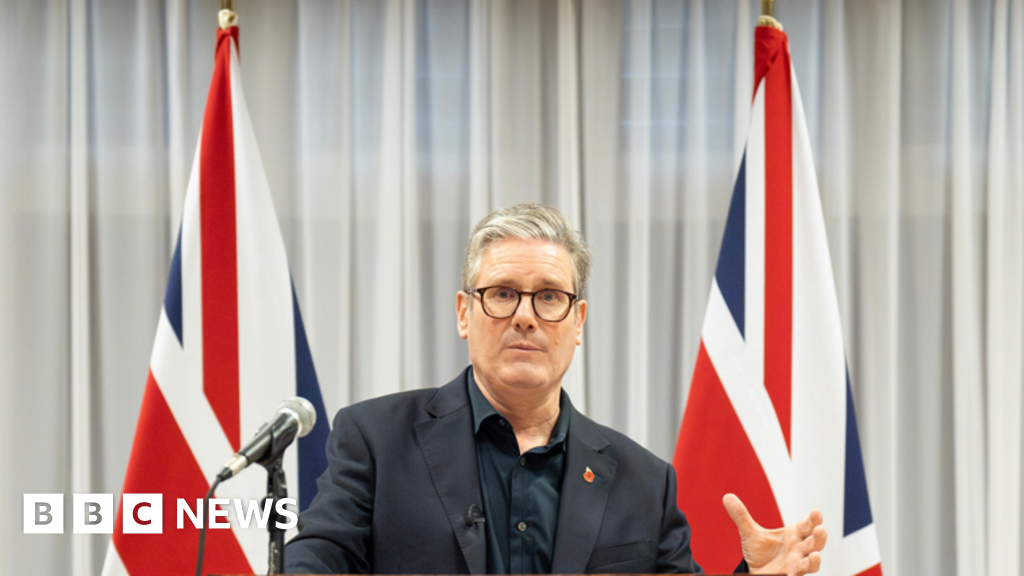Unlock the Editor’s Digest for free
Roula Khalaf, Editor of the FT, selects her favourite stories in this weekly newsletter.
Mark Zuckerberg said on Wednesday that strength in Meta’s core advertising business will allow the company to continue spending heavily on artificial intelligence next year and beyond, reassuring Wall Street as shares rose as much as 8 per cent.
Zuckerberg, Meta’s chief executive and founder, was eager to show that investments in AI were bearing fruit during an earnings call with analysts on Wednesday, pointing to examples such as improvements to its recommendations engine. The company’s Meta AI chatbot was also on track to become the most-used AI assistant in the world by the end of the year, he said.
However, he acknowledged that while products such as the chatbots would increase engagement with its platform, it would take “years” for the “monetisation of any of those things by themselves”.
Wall Street has been concerned by the surge in AI spending at Big Tech groups such as Microsoft, given the costs of training and maintaining models, as well as investing in the infrastructure to underpin it.
But Zuckerberg has been attempting to win over investors with his AI vision, promising to help advertisers automate their processes and better target ads to users, and that its chatbots will be able to assist users, creators and businesses.
In a sign of future infrastructure demands, Zuckerberg warned that the amount of compute needed to train Llama 4, its next large language model, would “likely be almost 10 times more” than what was used to train the current Llama 3 model and that would continue to grow with future models.
“At this point, I’d rather risk building capacity before it is needed, rather than too late,” he said, adding that next year the company would be planning the compute clusters it needs for the next several years.
In the meantime, concerns over the costly projects were offset by bumper results.
Revenue at the social media group jumped 22 per cent to $39.1bn in the past three months, beating analysts’ expectations of $38.3bn and the high end of its own forecast, which was $39bn. Analysts noted this was driven by a 10 per cent jump in both ad impressions and the average price per ad.
For the third quarter, Meta forecast revenues of $38.5bn to $41bn, topping estimates of a rise to $39.2bn.
“At the end of the day, we are in the fortunate position where the strong results that we’re seeing in our core products and business give us the opportunity to make deep investments for the future, and I plan to fully seize that opportunity to build some amazing things that will pay off for our community and our investors for decades to come,” Zuckerberg told analysts.
Net income at Meta — whose platforms include Facebook, Instagram and WhatsApp — rose 73 per cent to $13.5bn, above consensus expectations of an increase to $12.3bn, according to data from S&P Capital IQ.
However, it also raised the bottom of its range for full-year capital expenditure guidance from $35bn-$40bn to $37bn-$40bn.
Shares of Meta, which are up more than 35 per cent this year, rose as much as 8 per cent after the release.
The rising shares represent a turnaround from its previous quarterly results in April, when shares tumbled more than 10 per cent after Meta raised the high end of its full-year capex guidance in order to boost its AI infrastructure and plans.
Shares of rival Microsoft this week dipped lower even after it posted double-digit sales and earnings growth as it warned that already rising capex would continue to rise next year.
“We think [Meta] is doing a good job managing AI infrastructure costs. Still, we expect capex to rise considerably in 2025,” said Angelo Zino, technology equity analyst at CFRA Research.
“[We] believe Meta continues to be a share taker in the broader digital ad market, partly reflecting its more aggressive AI tactics to improve content [and] ad tools.”
Zuckerberg has recently conducted a publicity tour to tout his plans for the company to become the leader in AI, as well as the developer of smart glasses that he believes will overtake mobile devices as the next computing platform.
In a post last week, Zuckerberg said Meta’s latest open-source large language model, Llama 3.1, was now “frontier level”, catching up with the powerful AI model of rivals such as OpenAI, Google and Anthropic. Next year, he said future Llama models would “become the most advanced in the industry”.
Credit: Source link











